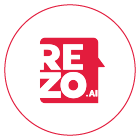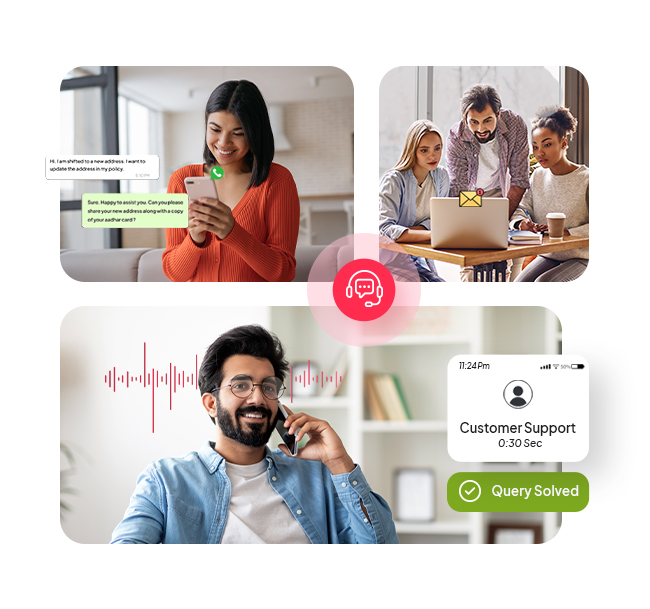
What are Chatbots: Benefits, Use Cases, How does Chatbot Work

What are Chatbots: Benefits, Use Cases, How does Chatbot Work


AI powered Chatbots are the future of customer support services. From small to big, every organisation is incorporating chatbots in their business systems. Rule-based Chatbots have become an increasingly popular tool for businesses to improve customer service. In a world where instant gratification is the norm, chatbots provide an efficient and convenient way for customers to get the information they need.
AI is advancing at a pace that no one imagined. Every other day you will hear of something new being created with the help of AI technology to ease human efforts. Chatbots are getting better day by day using Artificial Intelligence.
What are Chatbots?
AI powered Chatbots are computer programs designed to simulate conversations with human users. They can understand and respond to customer inquiries in a matter of seconds. The technology behind chatbot has advanced significantly in recent years, allowing them to widen their response scope and become more sophisticated and human-like.
How does chatbots work?
Chatbots are based on artificial intelligence technology. They use natural language processing (NLP) and machine learning algorithms to understand and respond to customer inquiries. They are programmed to recognize specific keywords and phrases and then generate a response based on a pre-determined script. More advanced AI powered chatbot can interpret the context and adapt their responses accordingly.
Benefits of Chatbots/ Why are Chatbots the Future?

AI Chatbot is a valuable tool for businesses looking to improve their customer service. With the ability to provide quick and efficient responses, increase availability, reduce costs, personalize interactions, and collect valuable data, AI powered chatbots are helping businesses to stay ahead of the competition in real time. The benefits of Chatbots:
- Improving the Customer experience: provide quick and efficient responses to customer inquiries, reducing wait times and improving the overall customer experience.
- Increased Availability: Chatbots are available 24/7, meaning customers can get the information they need at any time of the day or night.
- Cost Savings: Chatbot can handle a high volume of inquiries, reducing the need for human customer service representatives. This can result in significant cost savings for businesses.
- Personalization: Chatbots can be programmed to recognise customers’ intent and tone to simulate human conversation and provide personalized responses based on their previous interactions.
- Data Collection: Chatbot can collect valuable data on customer interactions, which can be used to improve the customer experience and inform business decisions.
Also Read: Types of Chatbots
How are Chatbots Getting Better?
Conversational AI with chatbots is getting better in several ways:
- Advancements in Machine Learning and Natural Language Processing (NLP) technologies enable chatbots to learn and improve and respond to user queries more human-likely.
- Integration with machine learning algorithms allows chat bots to improve continually and learn from user interactions.
- Increased use of conversational AI is leading to more sophisticated and intuitive chatbots that can handle complex queries and provide personalized responses.
- Advancements in voice recognition technology are making voice-powered chat bots more accurate and responsive.
- Improved data analysis and mining capabilities enable chatbots to provide more accurate and relevant responses.
- Integration with various platforms and devices enables chat bots to offer multi-channel support and reach a broader user base.
Use Cases of Chatbots

Chatbots can be used in almost every industry where a virtual connection or contact is required with customers. Chat bots can add value to the business with their capability of automated conversations. As technology is advancing, the scope of use cases of chatbots is also widening; some of the use cases are as follows:
- Customer service: handling frequently asked questions, providing support and assistance.
- Sales and marketing: lead generation, product recommendations, and personalized offers.
- E-commerce: product search, order tracking, and checkout.
- Healthcare: appointment scheduling, symptom checker, and telemedicine.
- Education and training: delivering course content, quizzes, and testing.
- Human resources: employee onboarding, benefits enrollment, and HR policies.
- Banking and finance: account balance inquiry, fraud detection, and investment advice.
- Personalised recommendations: recommending products to the user based on their history.
- Support 24*7 inquiry: round-the-clock assistance without any interruptions.
- Timely payment reminders: Avoid late payments and penalties with timely payment alerts.
- Automated quick response: instant customer support with minimal to no waiting time.
Will AI Replace Humans?
Artificial intelligence (AI) is intended to assist humans in solving complex problems and tasks. AI is designed to perform specific tasks, such as recognising patterns, making predictions, and automating processes. However, it lacks the emotional and creative intelligence unique to humans.
Moreover, AI systems are only as good as the data they are trained on, and the algorithms used to create them. On the other hand, humans possess a broad range of abilities and experiences that allow us to adapt to new situations and make decisions based on intuition, ethics, and empathy.
In conclusion, while AI has the potential to improve our lives and revolutionize many industries dramatically, it is unlikely to replace human intelligence completely. Instead, the future of AI is likely to be one in which humans and machines collaborate to augment each other’s strengths and solve problems in new and innovative ways.
Disadvantages of Chatbots
Chatbot is just a machine. Like every machine and technology, there are a few drawbacks to chatbots, which include:
- Limited Understanding: Chat bots lack human-level understanding and can only respond based on their programming and training, leading to limited accuracy and effectiveness.
- Understanding issues: They might struggle to understand and process human language, leading to misunderstandings and poor user experience.
- Lack of Empathy: Chatbots cannot understand emotions, tone, and context, which can result in insensitive or inappropriate responses.
- Dependence on good input: Chatbot can only respond effectively if the user inputs the correct information, making it less useful for complex or open-ended queries.
- Security Concerns: Chat bots can be vulnerable to hacking and malicious attacks, compromising user data and privacy.
- Over-reliance: Relying too heavily on chat bots can reduce the personal touch and human interaction in customer service and other applications.
Conclusion
As AI advances, chatbots are also getting better. Chat bots are aimed at reducing human efforts in customer support services. Chatbots are based on Machine learning and natural language processing. Using the technologies mentioned above, chat bots learn to process or interpret humans’ natural language, respond in a human-like manner, and solve human queries.
Businesses are leveraging chatbots to handle frequently asked questions, repetitive tasks and boost customer experience. Chatbots can be used in every industry where business contact customers virtually. Although chat bots are super convenient and beneficial, they have limited understanding, lack empathy, and depend majorly on the level of the input query.
Request a Demo Today- Contact Us
Frequently Asked Questions (FAQs)

Take the leap towards innovation with Rezo.ai
Get started now














